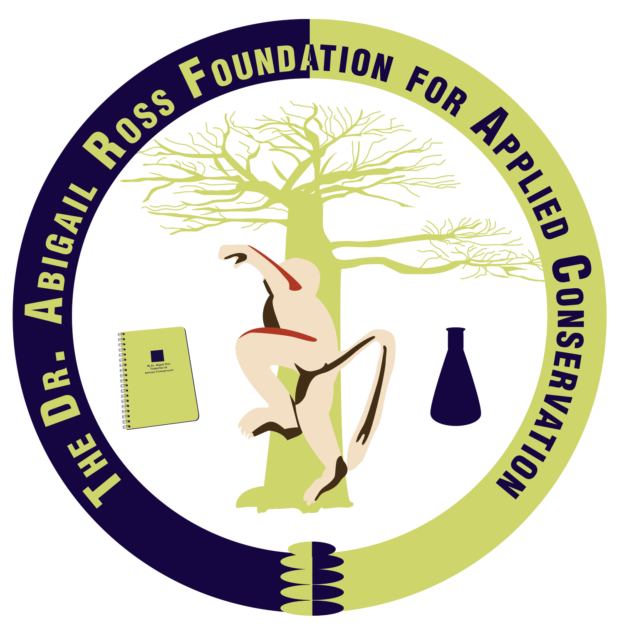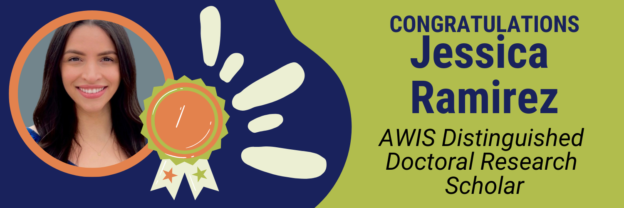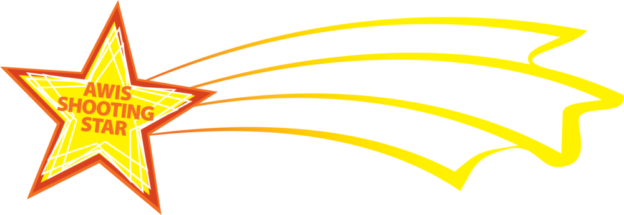Record-setting grant applications received, more than $55K awarded
Chicago and Rockford, Ill. (May 1, 2024) – The Dr. Abigail Ross Foundation for Applied Conservation (TDARFAC), a leading conservation-focused foundation based in Chicago and Rockford, Ill., has announced the recipients of its 2024 grant and award programs.
Of the 102 applications received from around the world – a record setting amount for the grant program – TDARFAC selected seven recipients and awarded $51,500 in grant funding to those whose conservation research and community-based conservation projects best aligned with the organization’s mission and achieved the following conservation objectives: building capacity, amplifying voices, and partnering with local communities.
TDARFAC’s grant program aims to support individuals, collaborations or partnerships, and non-governmental organizations working on projects based on any non-human primates, their habitats, or any animal or plant species which share and influence the same landscape as non-human primates and directly relate to their conservation.
“We are thrilled at the response to this year’s call for grant submissions and are honored to recognize the exemplary work of these partners and individuals in the field of conservation science,” said Dr. Abigail Ross, founder and executive director of TDARFAC. “We are confident that our Foundation’s grant funding will make a positive difference for these outstanding recipients.”
The grants will fund projects that focus on applied conservation. Following is the full list of the 2024 TDARFAC grant recipients.
The 2024 TDARFAC Grant Funding Recipients
| Recipient Name | Grant Amount (USD) | Project Title |
| Kuenzang Dorji | $15,000 | Revolution in Primate Conservation: A Citizen Science-Based Research and Community-Led Interventions for People and Endangered Gee’s Golden Langur Coexistence in Himalayan Biodiversity Hotspot-Bhutan |
| Katherine Culbertson | $12,000 | Understanding and Overcoming Barriers to Forest Regeneration in Critical Lemur Habitat |
| Dr. Hoby Rabesandratra | $9,000 | Making Lemur Conservation Effective in Madagascar by Proposing an Innovative, Pragmatic and Reflexive Conception of Environmental Education Based on Community and Science |
| Julieanne Montaquila | $8,000 | Exploring the Role of Canopy-Dwelling Parasitic Mistletoes in the Regeneration and Biodiversity of a Malagasy Rainforest |
| Niony Mamy Koloina Rakotoarivelo | $8,000 | Territory Exploitation Strategy of Propithecus diadema Relatively to the Fragmented and Continuous Forest at Tsinjoarivo-Ambalaomby Protected Area |
| Dr. Andrés Link | $5,000 | Reconnecting Isolated Populations of Brown Spider Monkeys (Ateles hybridus): Aligning Primate Conservation, Restoration Ecology with Local Capacity Building in Central Colombia |
| Lucy Millington | $2,500 | Developing New Methods for Monitoring Populations Using Novel Technology |
2024 TDARFAC Award Recipients
In addition to the grant program, the Foundation also developed an annual awards program which honors scientists and activists who make exceptional contributions to the field of conservation and preservation of biodiversity.
This year, TDARFAC recognized the following individuals as the recipients of its inaugural awards program:
Devoted to Discovery: Women Scientist Conservation Award, $2,500
Eliette Noromalala, Ph.D. student at the University of Texas at Austin studying Anthropology
This inclusive award recognizes the extraordinary and cutting-edge scientific work of women in conservation science, particularly focusing on highlighting the work from females from underrepresented communities in higher education.
Noromalala was nominated by noted Malagasy primatologist Dr. Jonah Ratsimbazafy due to her efforts answering key questions regarding infectious diseases in wildlife for the conservation management of endangered lemur species. She is currently a Ph.D. student at the University of Texas at Austin studying Anthropology and is a cofounder of Natior’Ala, a nature conservation association in Madagascar.
Advocates for Change: Future Conservationist & Activist Award, $2,500
Kuenzang Dorji, Director of Khebeythang Nature Center in association with the Ugyen Wangchuck Institute for Conservation and Environment Research in Bhutan
This award honors the achievements of early career conversationists and activists in applied conservation.
Dorji was nominated by Dr. Lori Sheeran, professor of anthropology at Central Washington University, due to his work as a skilled research team leader and his role in primate conservation efforts in Bhutan. He is currently enrolled with the University of Calgary’s Anthropology Ph.D. program and is committed to preserving intact ancient forest in his home country of Bhutan.
Dorji was also awarded a 2024 grant from TDARFAC for his project entitled: Revolution in Primate Conservation: A Citizen Science-Based Research and Community -Led Interventions for People and Endangered Gee’s Golden Langur Coexistence in Himalayan Biodiversity Hotspot-Bhutan.
“With the rapid changes our planet is undergoing, it’s more important than ever to support the next generation of conservation scientists to encourage them to effectively combat the effects of climate change through rewilding,” Dr. Ross said. “Through our awards program, TDARFAC can provide needed funding to up-and-coming conservationists who show enormous promise to help them achieve their career goals while building a more sustainable future.”
To learn more about TDARFAC and its award and grant programs, visit https://www.foundationforappliedconservation.org/grantsandawards.
About the Dr. Abigail Ross Foundation for Applied Conservation
Based in Chicago and Rockford, Ill. with a team operating in the field in Madagascar, The Dr. Abigail Ross Foundation for Applied Conservation aims to bridge the gap between academic breakthroughs in conservation science and applied conservation on the ground by generating actionable conservation interventions. The Foundation supports novel applications of techniques and approaches from the natural and social sciences while leveraging existing knowledge to solve real-world challenges.
A 501(c)(3) Private Foundation that formed in 2023, the Foundation accomplishes its goals by funding direct research and soliciting grant proposals and award nominations annually. Visit https://www.foundationforappliedconservation.org/ to learn more.



